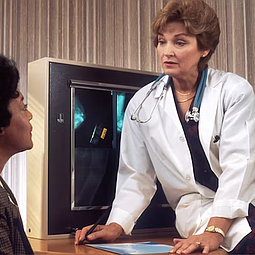Promising New Treatments for Alzheimer's Disease
June 18, 2023 at 5:45 p.m.
The annual Alzheimer's Disease drug development pipeline report for this year is providing a good reason for optimism.
According to the “Alzheimer’s Disease Drug Development Pipeline: 2023,” there are currently 187 clinical trials in the Alzheimer’s drug development pipeline. This is the most ever on record. This momentum is driven in part by greater investment from the pharma industry and a bump in biologic therapies, particularly monoclonal antibodies.
The annual report, published in Alzheimer’s & Dementia: Translational Research and Clinical Interventions, was led by Dr. Jeffrey Cummings, a leading Alzheimer’s clinician-scientist and research professor at University of Nevada School of Integrated Health Sciences. The goal of the annual report is to spot trends in clinical trial design and outcome measures, and also investigate the types of agents and biological targets that are being pursued.
“Our database has gotten stronger and our ability to draw analysis from the pipeline is ever better,” said Dr. Cummings, who first began the annual pipeline project in 2016. “We can derive lessons from both positive and negative trials that will inform and accelerate the development of new treatments.”
More than 6 million Americans are living with Alzheimer’s disease, a staggering number that’s expected to double within the next 30 years. Recently, the FDA approved Aduhelm (aducanumab) and Leqsebi (lecanemab) to treat early-stage symptoms of the disease. These are the first-ever disease-modifying therapies (DMTs) to earn the green light for use against Alzheimer’s.
Researchers identified data from all current phase 1, 2, and 3 clinical drug trials for Alzheimer’s Disease and Mild Cognitive Impairment as of January 1, 2023. The team tracked all therapies in the pipeline, the types of agents used, and how far along each is in the drug development process. The researchers also analyzed the agencies and industries funding clinical trials.
They found 58 new drugs have entered the pipeline in the past year and DMTs are the most common agents used in trials.
Approximately 28% of candidate therapies are repurposed from other diseases. "We are at an inflection point in the Alzheimer's field. The recent landmark FDA approvals we've seen for both disease-modifying and symptomatic treatments, as well as the diversification of the pipeline of potential new Alzheimer's therapies, provide hope to those impacted by this devastating disease," said Maria C. Carrillo, who is the chief science officer at the Alzheimer's Association.

John Schieszer is an award-winning national journalist and radio and podcast broadcaster of The Medical Minute. He can be reached at medicalminutes@gmail.com.





